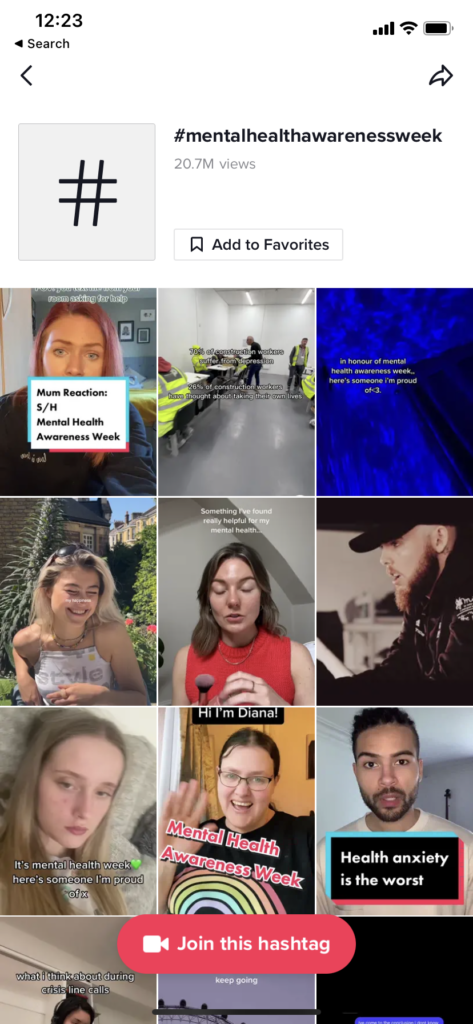
With over 1bn monthly active users in over 150 countries, TikTok is both cause and symptom of social media overload. The bulk of its users are young (32.5% of users in the US are aged 10-19 and 29.5% are aged 20-29, according to App Ape) and they spend 95 minutes a day on the app. For the platform, all this comes with enormous responsibility and a huge duty of care.
It’s generally the case that any hot new app beloved by teenagers is usually framed as The Core Cause Of Everything That Is Wrong With Modern Society. As part of a long-running PR push for it not to be seen as culturally and emotionally damaging, TikTok has been proactively pushing initiatives that, it hopes, portray it in a more favourable and altruistic light.
Central to this attempted recalibration of its public perception is #MentalHealthAwarenessWeek that takes place in May on TikTok. “[W]e are committed to building a supportive space where our community feels empowered to express themselves authentically and learn and share their different life experiences, challenges and their mental wellbeing,” says TikTok on its own website.
What this appears to mean is an almost-industrialised level of hashtag usage, notably #MentalHealthAwarenessWeek and #SelfCare, which the company says helps to “raise awareness of struggles while also creating communities of support” on the platform.
It highlights users like @drjuliesmith (whose account covers anxiety issues), @benjy_lookbook (giving tips on avoiding burnout) and @fahima.therapy (dispensing relationship therapy) as signs of the positive ways TikTok and TikTokers can be used to help people and offer support that they might not get anywhere else.
This is clearly intended to be a force for good, and that has had, in the case of #MentalHealthAwarenessWeek, tens of millions of associated views, and you’d hope, a positive impact on its viewers. But there’s a lot of complexity here: the very core mechanics of social media platforms are being partially blamed for driving a surge in mental health problems.
Musicians are also becoming more vocal about how they feel that social media is leaving them with burnout. One is left wondering whether the owners of the platform are addressing the fundamental problems associated with social media in general (and in this case, TikTok).
By all means, highlight people doing good work on TikTok, but unless TikTok itself is working on the things that can make TikTok bad for users (and, yes, there are also plenty of good things on TikTok), it’s worth asking if something more fundamental could be done to help – and protect those vulnerable users.